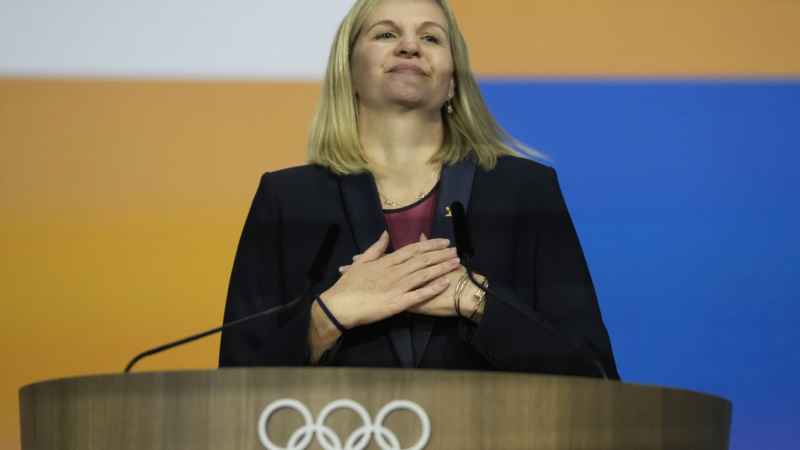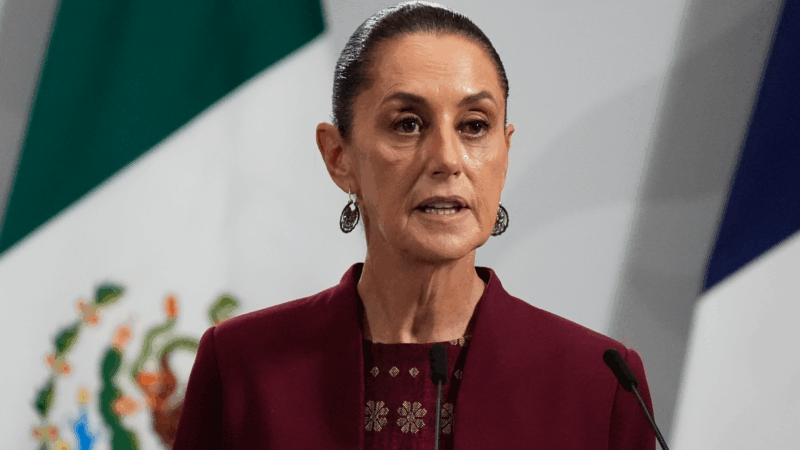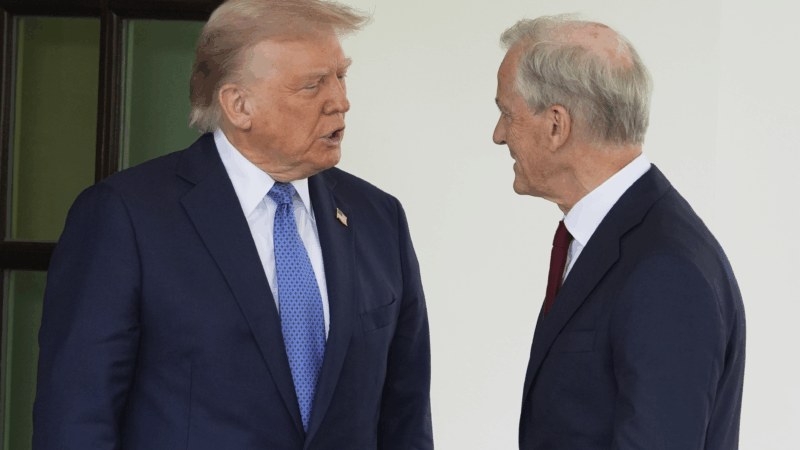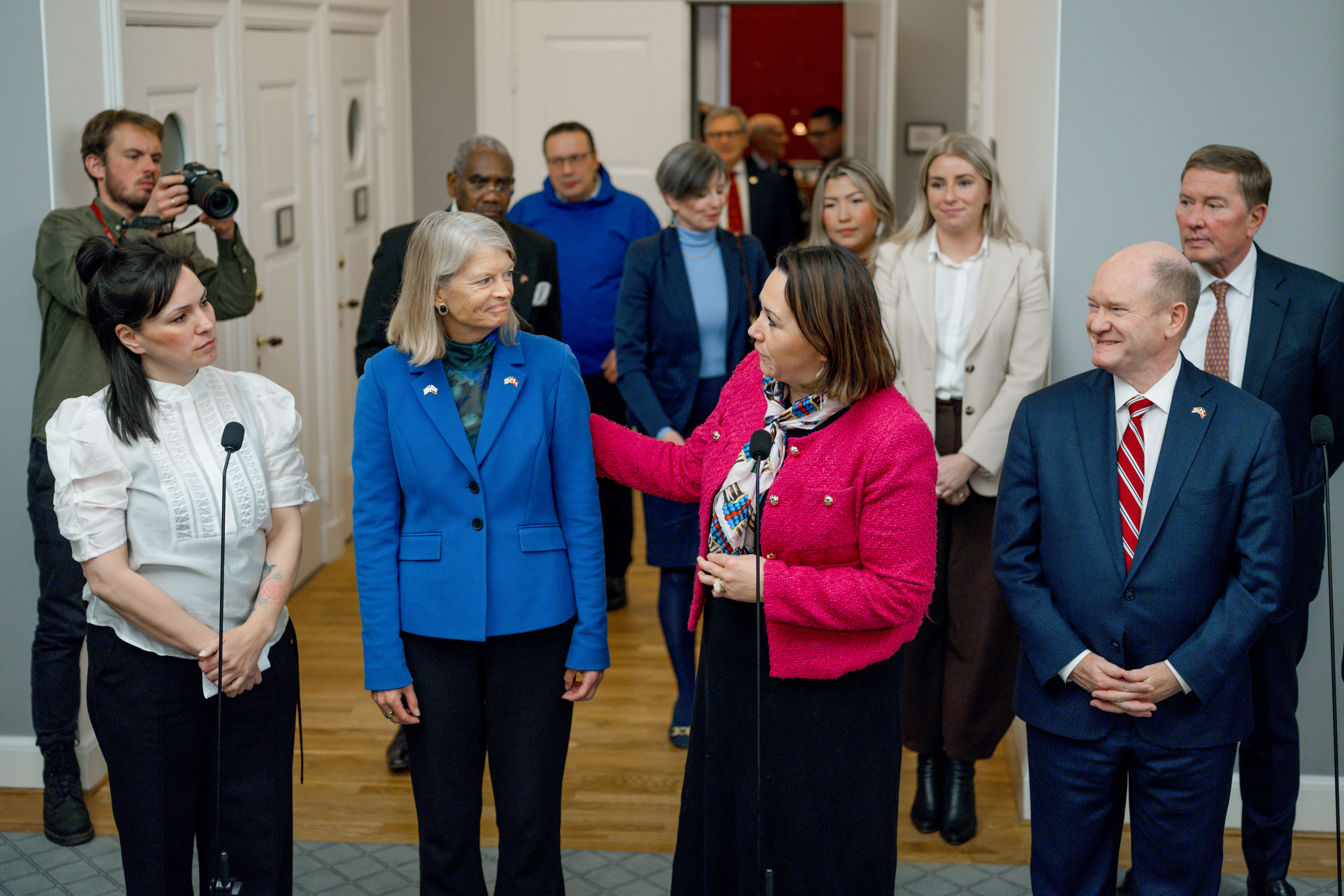Zimbabwean millennial Kirsty Coventry gets Olympic top job
JOHANNESBURG, South Africa—Zimbabwean Olympic swimmer Kirsty Coventry has had an eventful career, from the pool, to parliament.
The country’s former dictator, Robert Mugabe, called her “a golden girl,” while the man who deposed him in a coup — Emmerson “the Crocodile” Mnangagwa – appointed her his minister of sports.
Now the 41-year-old is taking on a whole new role, after being voted in on Thursday as the first female — and first African — president of the International Olympic Committee [IOC]. She’s also the youngest.
“The young girl who first started swimming in Zimbabwe all those years ago could never have dreamt of this moment,” she said after winning a majority 49 of 97 votes, and beating six men to the post. “Glass ceilings have been shattered today.”
Coventry was born in a newly-independent Zimbabwe in 1983, just years after a liberation war that saw the end of white-minority rule in what had once been Rhodesia.
She was a swimming star from an early age, competing in her first Olympics in 2000 when she was still at high school. But it was in the 2004 and 2008 Games where she really excelled, winning the Gold both times in the 200-meter backstroke.

She was popular with Zimbabweans of all races for winning the country a total of seven medals before she retired in 2016.
However she has faced some criticism for participating in Mnangagwa’s government, which has been accused of rights abuses and which held a disputed election in 2023.
There has also been controversy around Coventry’s stance on transgender athletes. She has said transgender women have an unfair advantage and has backed a blanket ban on them competing in women’s Olympic sports.
That might smooth her relations with the president of the next country set to hold a summer Olympics: the US. Los Angeles will host the 2028 Games, and President Donald Trump has been a vocal opponent of transgender women in sport.
But there are worries for the next Olympics at a time of increasing global polarization.
Asked by journalists Thursday if she was concerned about dealing with Trump, if for example he tried to ban athletes from certain countries, the Zimbabwean was blasé.
“I have been dealing with, let’s say, difficult men in high positions since I was 20 years old,” she quipped.
Italian fashion designer Valentino dies at 93
Garavani built one of the most recognizable luxury brands in the world. His clients included royalty, Hollywood stars, and first ladies.
Sheinbaum reassures Mexico after US military movements spark concern
Mexican President Claudia Sheinbaum quelled concerns on Monday about two recent movements of the U.S. military in the vicinity of Mexico that have the country on edge since the attack on Venezuela.
Trump says he’s pursuing Greenland after perceived Nobel Peace Prize snub
"Considering your Country decided not to give me the Nobel Peace Prize… I no longer feel an obligation to think purely of Peace," Trump wrote in a message to the Norwegian Prime Minister.
Trump has rolled out many of the Project 2025 policies he once claimed ignorance about
Some of the 2025 policies that have been implemented include cracking down on immigration and dismantling the Department of Education.
U.S. lawmakers wrap reassurance tour in Denmark as tensions around Greenland grow
A bipartisan congressional delegation traveled to Denmark to try to deescalate rising tensions. Just as they were finishing, President Trump announced new tariffs on the country until it agrees to his plan of acquiring Greenland.
Can exercise and anti-inflammatories fend off aging? A study aims to find out
New research is underway to test whether a combination of high-intensity interval training and generic medicines can slow down aging and fend off age-related diseases. Here's how it might work.








